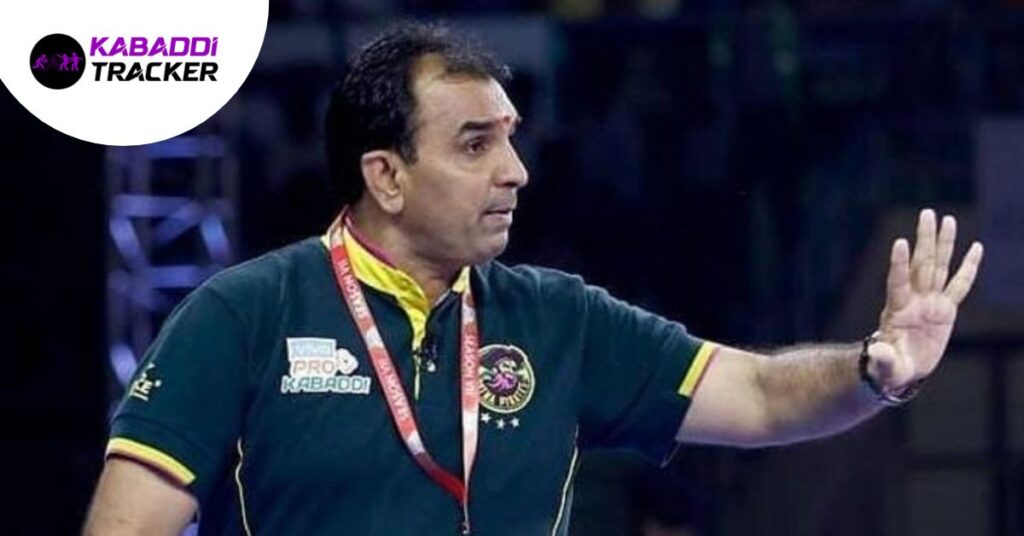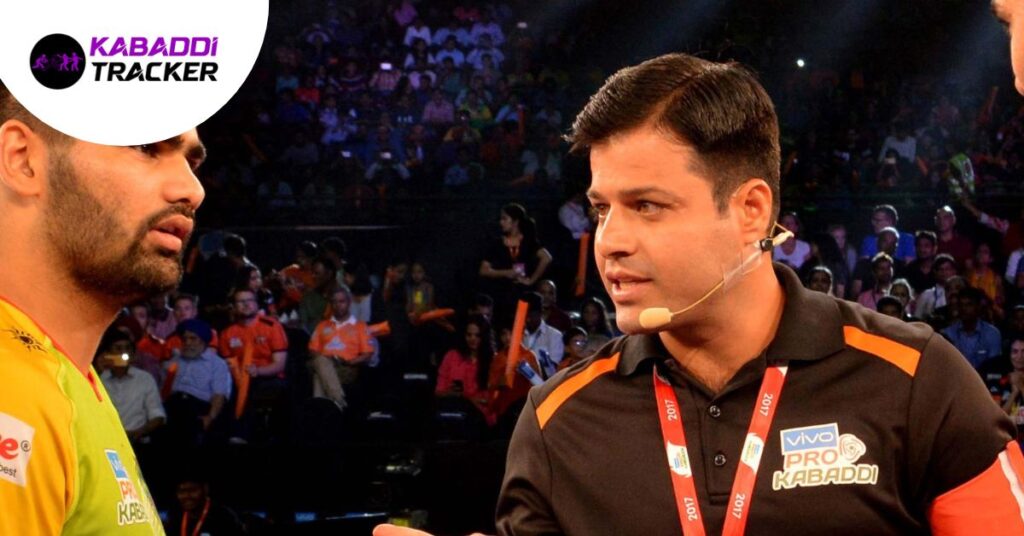Kabaddi, a traditional sport originating from India, has gained international recognition for its fast-paced and physically demanding gameplay. At the heart of this exhilarating sport is the pivotal figure of the umpire, whose job transcends beyond that of a simple rule enforcer. The umpire in kabaddi is kind of a conductor, orchestrating the progression of the game and ensuring fair play while maintaining the spirit of sportsmanship. This article delves into the multifaceted responsibilities of a kabaddi umpire, featuring their importance in maintaining the trustworthiness of the game.
The Job of an Umpire in Kabaddi: A Multifaceted Responsibility
Understanding the Rules:
An umpire in kabaddi is first and foremost a guardian of the rules of the game. Kabaddi, with its intricate regulations and scoring mechanisms, demands an umpire who possesses a top to bottom understanding of the sport. From accurately calling out “raids” and “touches” to deciding successful captures, the umpire’s information ensures that the game progresses fairly.
Decision-Making:
In the heat of the action, an umpire’s decision-making skills are scrutinized. Speedy and accurate judgments are necessary to decide if a raider has successfully contacted an opponent and gotten back to their side of the court without being tackled. These split-second decisions can drastically alter the course of a match, underscoring the umpire’s importance as a neutral and unbiased authority.

Communication:
Compelling communication is a cornerstone of umpiring in kabaddi. Umpires need to succinctly convey their decisions to players, coaches, and spectators. This skill prevents misunderstandings as well as maintains the smooth progression of the game. In cases where a player or coach disputes a decision, the umpire’s ability to explain their rationale with clarity is essential in maintaining the uprightness of the game.
Control and Management:
Kabaddi matches are innately intense, with players pushing their physical and mental limits. It falls upon the umpire to maintain control over the players’ conduct and behaviour. Umpires must forestall unsportsmanlike conduct, monitor the time limits for raider actions, and ensure that team benches adhere to the rules. This control contributes to a safe and respectful environment for the two players and spectators.
Video Audit and Technology:
Lately, technology has been integrated into kabaddi to assist umpires in making accurate decisions. Video reviews allow umpires to survey contentious situations and redress any potential errors. Nonetheless, this addition has not diminished the importance of the on-field umpire’s judgment; instead, it supplements their job, ensuring fairness even in the face of challenging situations.
The Umpire’s Impact on the Game
Fair Play and Sportsmanship:
An umpire’s presence on the field ensures that the game is played in the spirit of fairness and sportsmanship. Their impartiality and adherence to the rules set the tone for players and teams, promoting healthy competition and respect for opponents. The respect accorded to the umpire as an authority figure underscores their job as a moral compass inside the sport.
Game Stream and Entertainment:
The umpire’s decisions straightforwardly impact the progression of the game. Consistent and accurate calls maintain the rhythm of the match, forestalling unnecessary interruptions that can impede the entertainment value for both live audiences and viewers at home. A skilled umpire is adept at perceiving the rhythmic movement of the match and adjusting their decisions to maintain the fervour.
Also Read – How many players are there in a Kabaddi Team?
Player Confidence:
A proficient umpire installs confidence in players, assuring them that the game will be conducted fairly. At the point when players trust the umpire’s judgment, they can focus on their performance rather than stressing over biased decisions. This player-umpire rapport contributes to the overall positive experience for everyone included.
The Evolution of Umpiring in Kabaddi: A Historical Perspective

Umpiring in kabaddi has advanced significantly throughout the long term, reflecting the sport’s excursion from its grassroots origins to its contemporary global presence. Initially, kabaddi was played in rural settings without formalized rules or referees. The game depended heavily on the honour system, where players themselves would acknowledge their own outs or fouls. Be that as it may, as the sport gained popularity and moved towards cutthroat formats, the requirement for a structured umpiring system became obvious.
Training and Qualifications of Kabaddi Umpires
Current kabaddi umpires are professionals who go through rigorous training to ensure their capability and impartiality. Umpire training programs cover the rules of the game, decision-making techniques, conflict resolution, communication skills, and physical fitness. These training sessions are designed to prepare umpires to handle the fast-paced nature of kabaddi matches, where split-second decisions can have profound consequences.
Challenges Faced by Kabaddi Umpires
Umpiring in kabaddi comes with its own set of challenges, particularly in a sport known for its extreme focus and subjective decisions. One of the primary challenges is maintaining consistency in decision-making. Various interpretations of player actions, such as touches and successful captures, can lead to varying outcomes. Umpires must strike a delicate balance between adhering to the rulebook and accounting for the liquid nature of the game.
In addition, handling player dissent is another challenge. Emotional outbursts, disagreements, and confrontations with players or coaches can disrupt the progression of the match. Umpires need to assert their authority while maintaining their composure, it are respected to ensure that their decisions.
The Technological Impact on Umpiring
Technology has turned into an integral part of present-day sports, and kabaddi is no exception. Video reviews, instant replays, and even advanced tracking systems have been acquainted to assist umpires in making accurate decisions. Video reviews are particularly valuable in cases where the outcome of a match could depend on a single touch or capture. This addition has improved decision accuracy as well as added a layer of transparency to the umpiring process, as viewers can witness the decision-making in real life.
Also Read – List Of Kabaddi Academy in India
Promoting Umpire Diversity and Inclusion

As kabaddi continues to expand its global impression, there is a developing emphasis on promoting diversity and inclusion among umpires. Ensuring a diverse pool of umpires not just represents the varied demographics of the players yet additionally introduces a broader range of perspectives to the game. This diversity enriches the overall quality of umpiring decisions and underscores the sport’s obligation to inclusivity.
Umpires as Role Models
Umpires in kabaddi often serve as good examples for aspiring players and officials. Their dedication to maintaining the spirit of the game, even in challenging situations, sets an example for players in terms of respect, lowliness, and sportsmanship. Youthful kabaddi enthusiasts admire umpires as symbols of authority, uprightness, and fair play, reinforcing the idea that umpiring is a task as well as a responsibility that extends beyond the boundaries of the playing field.
In the dynamic universe of kabaddi, where energy and fervour run high, the job of the umpire is of paramount importance. A successful kabaddi match is a result of seamless coordination between players, coaches, and officials, with the umpire serving as the key part that holds everything together. From ensuring that the rules are observed to creating an environment of sportsmanship and fairness, the umpire’s responsibilities are myriad.
The excursion of an umpire is one of continuous learning and evolution. As the sport of kabaddi continues to captivate audiences around the world, the umpire’s job will continue to adapt to new challenges and opportunities. It is their unwavering obligation to the values of kabaddi — courage, teamwork, and respect — that ensures the sport remains a celebration of skill, athleticism, and camaraderie. The following time you watch a kabaddi match, recall that in the background, an umpire is orchestrating the symphony of competition, ensuring that the spirit of the game remains vibrant and valid.



